Between a Rock and a Soft Place
Originally published in the Bangkok Post, Wednesday 21 December 2005
By George Romanyk
Even as I write this, the guttural growl of a Harley Davidson (not to mention a roaring chorus of other Harleys, BMWs and Japanese superbikes) is still echoing in my ears. You see, I've just returned from a five-day road trip to the Golden Triangle, along with an assortment of biker friends who also happen to be company presidents, CEOs and entrepreneurs. Now, before you start wondering what this has to do with a column on branding (or start snickering "born to be mild''), I'd like to share some insights I garnered during the course of this challenging and exhilarating journey.
While our group was on the road during the days, we certainly weren't averse to roughing it. We got our motors running, we headed out on the highway, and when the highway occasionally deteriorated into a rutted, muddy track, we were well up for it.
Ah, but at the end of each day, the discomforts of the road were eased by the unique boutique resorts on the Mekong our assistants had booked us into, as well as some first class meals, and the imported wines and cheeses and some truly tasty Cuban cigars we had smuggled along in our saddlebags.
My point (besides making you green with envy) is that our little jaunt was a good example of a major change sweeping the world right now in how luxury is perceived and experienced. For many of the "baby boomers'' and the swelling ranks of "Generation X'' (people born between 1964 and 1976 or thereabouts), the era of ostentatious luxury is over, and instead they are demanding authenticity and adventure. We still want our luxuries, but we want them contemporary, with a hip twist; luxury that "keeps it real'', as it were.
Particularly in the luxury hotel and travel sector are these demands being felt. At the recent International Luxury Travel Market in Cannes, the age of ostentatious travel was proclaimed to be over, with new research unveiled showing today's wealthy travellers needed "authenticity, exclusivity and attention to detail'' to keep them happy. "Personalised'' and "private'' were also big buzzwords.
In a survey of 248 travel suppliers from around the world who service the needs of the affluent, 84% agreed their clients sought a more subtle form of luxury than in the past. The survey, by the Future Foundation, concluded: "No longer content to visit the classic haunts of the rich and famous, today's luxury traveller would prefer to be a trailblazer, albeit in great comfort, and visit new and less discovered destinations.''
According to ILTM's founder, Serge Dive: "The tastes of the rich don't stay still. Our research shows that the luxury traveller of today doesn't just want to be pampered-- they want a total escape from their highly pressured lives and they want to come back from their holiday having experienced something new.''
Another trend is that as more people get rich younger, they take less formal but shorter trips, with technology allowing them to blur the line between business and leisure travel. Also, little things often count for much: 65% of those surveyed said the toiletries on offer in a hotel were important, with recognised luxury brands meriting maximum brownie points.
After our trip, I can heartily agree with that last point: eight windblown hours in the saddle of your steel steed, and you really appreciate little treats like a scented hot towel, some luxurious shampoo and shower gel, and a unique hotel experience.
These findings also echo research our own firm has conducted during the course of a major re-branding project with one of our major hotel clients. Our research results concur that well-heeled travellers prefer service that gives them space to be themselves and to feel totally relaxed (while still meeting their every need of course) rather than the more intrusive and obsequious style of service offered by many five-star hotels in the past.
A recent article in Newsweek notes: "Travel used to be divided into two basic categories: luxury and no-frills. The former consisted of flying first class, dining at three star restaurants and staying in decadent comfort; the latter involved backpacking and camping out in some of the world's most beautifully remote spots. Now, tourists can have their wine and see the wildlife too; communing with nature and living the good life are no longer mutually exclusive.''
Newsweek defines this as "rustic luxury'': a group of wealthy "new nomads'' toting Mount Everest-ready backpacks by luxury luggage-makers like Tumi, who want to visit the most rugged deserts, jungles, mountains and forests, and go rock-climbing and wreck-diving, but want their designer coffee and Egyptian cotton sheets when the day's adventuring is done.
There is also the element of one-upmanship among this growing demographic. As one new nomad tells Newsweek: "It's a status game. Staying at the Four Seasons seems kind of bourgeois, since any doctor from the Midwest will know about it.''
To me, getting wild without losing the luxury is like a marriage made in heaven. There's nothing like zipping through rugged jungle tracks on your hog, getting down and dirty, when you know that some prime rib, a nice glass of Bordeaux and a fat stogie have your name on them.
George Romanyk is chief executive officer of Creative Inhouse, a local branding consultancy and ad agency.

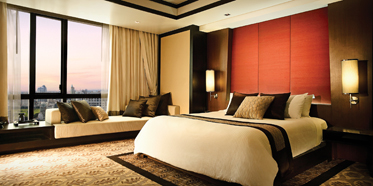

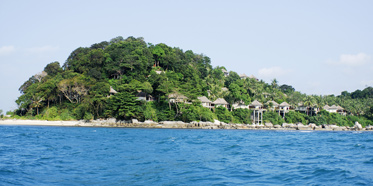
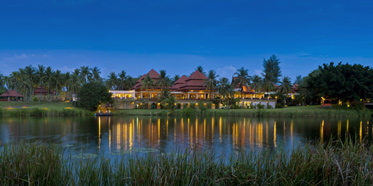
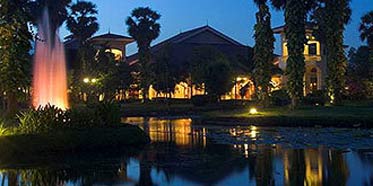
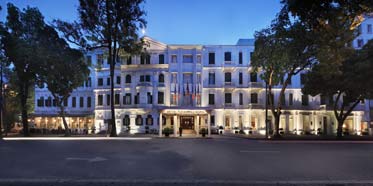
 Book Flight
Book Flight